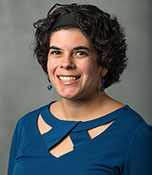Clinical Spotlight: Early Childhood Mental Health Program
The Early Childhood Mental Health (ECMH) program provides primarily therapeutic services, which typically involve a significant component of parent coaching/guidance.
The ECMH program begins with a diagnostic evaluation (aka an intake) which is separated across two sessions:
- First is a parent/caregiver session to gather background information
- Second is a parent/caregiver-child observation session
At the end of these two sessions, the family is provided with feedback and a full report, including our recommendations.
Most commonly, families then begin parent/caregiver-child therapy. Depending on the developmental stage of a child, we may do some 1:1 skill-building with them as well. We take a relational approach, so are deeply informed by infant mental health tenants.
The child and family identities are also central to our case conceptualization and treatment planning, and an important part of the intake process. Our modalities are further informed by The Incredible Years, Child-Parent Psychotherapy, and Trauma-Focused CBT principles.

The ECMH team is led by Katherine (Katie) Lingras, PhD, LP, who works with two psychology interns and often a psychology practicum student.
"We have rockstar intake partners who help with all the logistics of getting families in to see us," said Lingras. "We regularly collaborate across disciplines, including early childhood education settings (preschool/Head Start/daycare programs), speech therapy, occupational therapy, and primary care."
Who We Serve
We serve children 0-6 and their caregiver/families. We see pretty much any child within that age range who is presenting a behavioral or emotional concern or questions. (“We’re not sure of this is normal or not” is also a completely fine referral question!).
If a child already has an identified developmental delay or Autism diagnosis, we generally will direct them to more diagnosis-specific services. We don’t do full developmental testing/assessments, so this wouldn’t be the best place to start for families seeking that service/outcome.
How Can I Refer a Patient or Learn More?
Referrals can be made by placing an peds mental health referral in Epic or by calling the MIDB clinic at 612-301-0115.



